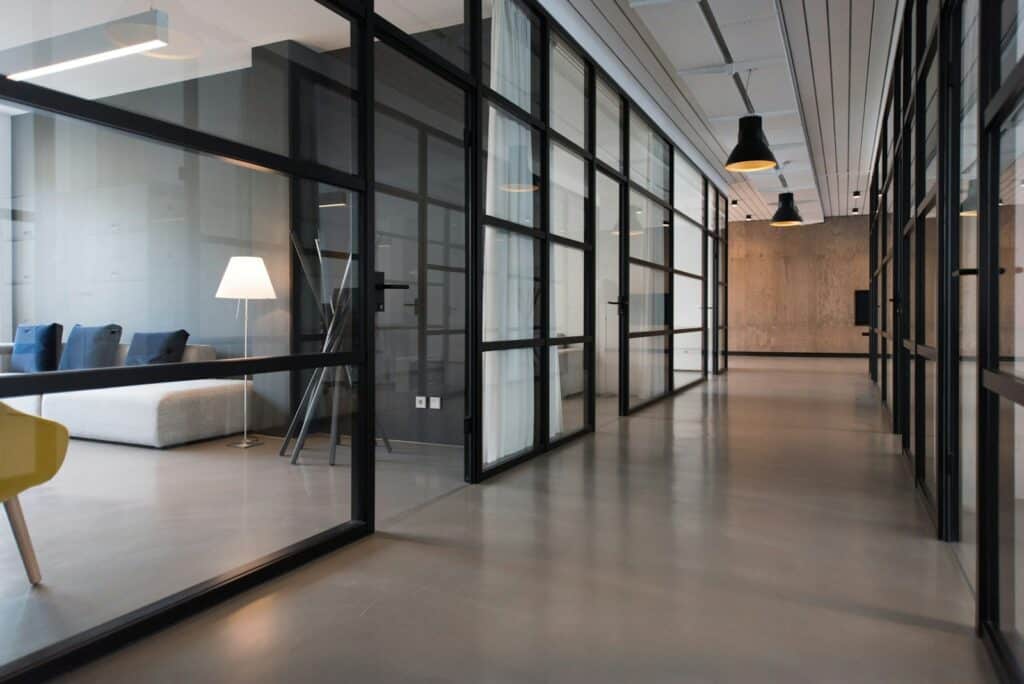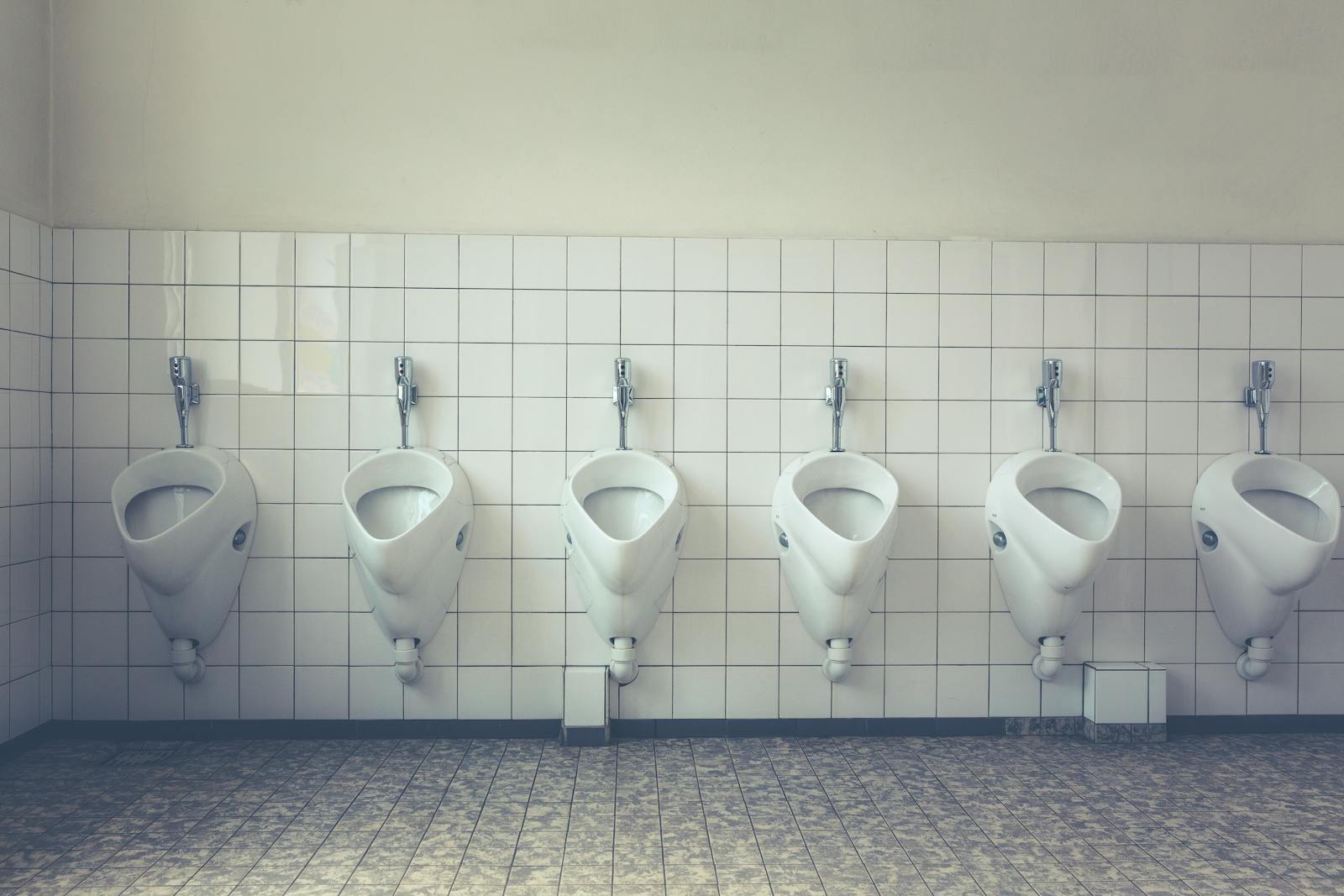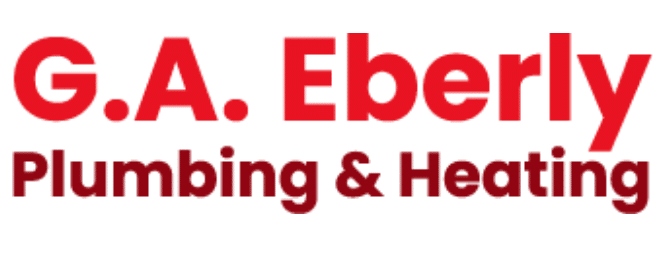Commercial plumbing systems are the backbone of successful businesses, yet many property owners and managers overlook their complexity until problems arise. Unlike residential plumbing, commercial plumbing systems must handle higher volumes, more frequent use, and stricter regulatory requirements while maintaining consistent performance across large facilities.
Whether you manage an office building, restaurant, retail space, or industrial facility, understanding commercial plumbing basics can save you thousands in emergency repairs and downtime. This comprehensive guide covers everything from system fundamentals to maintenance strategies, helping you make informed decisions about your commercial property’s plumbing infrastructure.
From drain cleaning services to major system overhauls, we’ll explore the unique demands of commercial environments and how professional commercial plumbers address these challenges. You’ll discover why commercial and residential plumbing require different approaches and learn practical strategies for keeping your business running smoothly.
Understanding Commercial Plumbing Systems
Commercial plumbing systems differ significantly from their residential counterparts in scale, complexity, and usage patterns. These systems must serve dozens or hundreds of people daily while meeting stringent building codes and health regulations.
Key Components of Commercial Plumbing
Commercial properties rely on interconnected systems that include water supply lines, drainage networks, and specialized equipment. Water pipes in commercial buildings often span multiple floors and require higher-pressure systems to ensure adequate flow throughout the structure. Industrial facilities may need additional components like chemical waste systems or specialized processing equipment.
Sewer lines in commercial properties handle substantially more waste than residential buildings, requiring larger diameter pipes and more robust construction. These systems often connect to municipal networks through complex routing that must account for multiple discharge points and varying waste types.
Water heaters in commercial settings operate on a much larger scale than residential units. Many buildings require multiple units or centralized systems capable of providing hot water to numerous fixtures simultaneously. Industrial plumbing applications may require steam systems or specialized heating solutions for manufacturing processes.
Commercial vs Residential Plumbing Differences
The unique demands of commercial environments create challenges that residential plumbing rarely encounters. Commercial plumbing systems must handle continuous use during business hours, with some facilities operating around the clock. This constant demand places significant stress on components and requires more frequent maintenance intervals.
Building codes for commercial properties are more stringent than residential requirements, often mandating specific materials, installation methods, and safety features. Commercial plumbers must stay current with evolving regulations and ensure all work meets or exceeds these standards.
Access to plumbing systems in commercial buildings can be complicated by business operations. Repairs often must be scheduled around operating hours or coordinated with multiple tenants in shopping centers or office complexes. This scheduling complexity requires careful planning and often emergency service capabilities.
Types of Commercial Plumbing Services
Professional commercial plumbing services encompass a wide range of specialized solutions designed to meet the diverse needs of business environments. Understanding these services helps property managers make informed decisions about maintenance and repairs.
Installation and Repair Services
Expert commercial plumbing repair addresses everything from minor fixture adjustments to major system overhauls. Commercial properties often require immediate assistance when plumbing issues arise, as downtime can significantly impact business operations and revenue.
Installation services for commercial properties involve complex planning and coordination. New construction projects require detailed system design that accounts for occupancy loads, usage patterns, and future expansion needs. Tenant improvements in existing buildings may require modifications to accommodate new businesses or changed layouts.
Water-efficient plumbing fixtures play an increasingly important role in commercial installations. These upgrades not only reduce operating costs but also help businesses meet sustainability goals and comply with green building standards.
Preventative Maintenance Programs
Routine maintenance is crucial for commercial plumbing systems due to their high usage and complex nature. Preventive maintenance programs help identify potential problems before they become costly emergencies, extending system life and reducing unexpected downtime.
Regular maintenance includes inspecting water pipes for corrosion, testing water pressure throughout the system, and checking fixtures for proper operation. Drain cleaning services should be performed regularly in commercial kitchens and high-use facilities to prevent blockages that could disrupt operations.
Ongoing maintenance contracts provide businesses with predictable costs and priority service. These agreements typically include regular inspections, emergency response protocols, and discounted repair rates.
Specialized Industrial Services
Industrial facilities have unique plumbing requirements that standard commercial services may not address. Industrial plumbing systems often handle specialized fluids, operate under extreme conditions, or integrate with manufacturing processes.
These environments may require custom solutions for waste management, chemical handling, or process cooling. Industrial clients often need contractors who understand both plumbing systems and manufacturing requirements.
Common Commercial Plumbing Issues
Commercial properties face recurring plumbing challenges that can significantly impact operations if not addressed promptly. Understanding these common issues helps property managers recognize problems early and implement effective solutions.
Drain and Sewer Problems
Clogged drains rank among the most frequent commercial plumbing issues, particularly in restaurants, hotels, and facilities with high water usage. Commercial drains handle larger volumes of waste and debris than residential systems, making regular drain cleaning essential for preventing blockages.
Sewer line problems can affect entire buildings or complexes, creating health hazards and operational disruptions. Tree roots, aging infrastructure, and improper disposal practices contribute to sewer line failures that require professional intervention.
Grease buildup in commercial kitchens creates persistent drainage problems that standard residential solutions cannot address. Specialized equipment and cleaning techniques are necessary to maintain these systems properly.
Water Pressure and Temperature Issues
Maintaining consistent water pressure throughout large commercial buildings challenges even well-designed systems. Upper floors may experience low pressure during peak usage periods, while ground-floor fixtures might have excessive pressure that damages equipment.
Water heater capacity issues become apparent when multiple fixtures require hot water simultaneously. Undersized systems cannot meet demand, while oversized units waste energy and increase operating costs.
Temperature fluctuations in commercial buildings can indicate problems with water heater maintenance, distribution system design, or control systems that regulate water temperature.
Code Compliance Challenges
Building codes for commercial properties change regularly, and existing systems may not meet current standards. Plumbing codes address everything from pipe materials to fixture placement, with violations potentially resulting in fines or operational shutdowns.
Code compliance becomes particularly complex during renovations or tenant improvements when new work must integrate with existing systems. Commercial plumbers must ensure all modifications meet current standards while maintaining system functionality.
Choosing Professional Commercial Plumbers Like G.A. Eberly Plumbing & Heating
Selecting the right commercial plumbing company significantly impacts system performance, regulatory compliance, and long-term costs. The complexity of commercial systems requires specialized knowledge and experience that general contractors may not possess.
Essential Qualifications and Certifications
Commercial plumbers should hold appropriate licenses for the jurisdictions where they work and maintain current certifications in specialized areas. Master plumber credentials indicate advanced training and experience with complex systems.
Insurance coverage is crucial when selecting commercial plumbing contractors. General liability and workers’ compensation insurance protect property owners from potential claims related to plumbing work.
Why Choose G.A. Eberly Plumbing & Heating?
When it comes to reliable and professional plumbing services, G.A. Eberly Plumbing & Heating stands out as the go-to choice for both commercial and residential plumbing needs. With years of experience in the industry, G.A. Eberly offers a comprehensive range of services, from routine maintenance and repairs to the installation of advanced plumbing systems.
Their team of skilled technicians is committed to providing high-quality craftsmanship and exceptional customer service. Whether you are managing a large commercial property or need assistance in your home, G.A. Eberly ensures timely and efficient solutions tailored to your specific requirements. Trust G.A. Eberly Plumbing & Heating to keep your plumbing systems running smoothly and efficiently. For more information, visit gaeberly.com.
Experience with Commercial Properties
Experience with similar commercial properties provides valuable insight into system requirements and potential challenges. A plumbing company that specializes in office buildings may not understand the unique needs of industrial facilities or restaurants.
References from institutional clients can provide insight into a contractor’s reliability, quality of work, and ability to work within commercial environments. Property managers should verify recent commercial projects and customer satisfaction.
Understanding of business operations helps contractors minimize disruption during repairs and maintenance. Experienced commercial plumbers can often work around business hours or coordinate with facility managers to reduce operational impact.
Emergency Response Capabilities
Commercial properties cannot afford extended plumbing outages, making emergency response capabilities essential when selecting contractors. Twenty-four-hour availability and rapid response times help minimize business disruption.
Fully stocked service vehicles enable technicians to complete many repairs without delays for parts or equipment. This capability is particularly important for commercial properties where downtime costs escalate quickly.
Communication protocols during emergencies help property managers coordinate with tenants, employees, and customers. Professional commercial plumbing services maintain clear communication throughout emergency situations.
Regular Maintenance Strategies for Commercial Properties
Effective maintenance strategies prevent costly emergencies while extending system life and optimizing performance. Commercial properties require more intensive maintenance than residential buildings due to higher usage and system complexity.
Developing a Preventative Maintenance Schedule
Regular maintenance schedules should account for usage patterns, system age, and manufacturer recommendations. High-use facilities may require monthly inspections, while lower-use buildings might need quarterly attention.
Seasonal maintenance addresses weather-related challenges and prepares systems for changing demands. Spring inspections can identify winter damage, while fall maintenance prepares systems for increased heating loads.
Documentation of maintenance activities helps track system performance and identify recurring problems. Detailed records also demonstrate due diligence for insurance claims and regulatory inspections.
Water Efficiency Improvements
Water-efficient plumbing fixtures reduce operating costs while supporting sustainability goals. Modern fixtures often provide better performance while using significantly less water than older models.
Leak detection programs help identify water waste that may not be immediately apparent. Small leaks in commercial systems can waste thousands of gallons annually, significantly increasing utility costs.
System monitoring technologies can track water usage patterns and identify anomalies that indicate problems. These systems help property managers optimize water use and detect issues early.
Training and Education for Facility Staff
Basic plumbing knowledge helps facility staff identify problems early and perform simple maintenance tasks. Training should cover shutdown procedures, leak identification, and emergency response protocols.
Tenant education in multi-tenant buildings helps prevent problems caused by improper use or disposal practices. Clear guidelines about what should not go down drains can prevent many maintenance issues.
Regular communication with tenants about planned maintenance helps coordinate schedules and minimize disruptions. Advance notice allows businesses to plan around potential service interruptions.
Building Code Compliance and Regulations
Commercial plumbing must meet stringent regulatory requirements that address public health, safety, and environmental protection. Staying current with evolving codes requires ongoing attention and professional expertise.
Understanding Commercial Plumbing Codes
Plumbing codes establish minimum standards for materials, installation methods, and system design. These codes vary by jurisdiction but generally address similar safety and performance requirements.
Water quality regulations may require specific materials or treatment systems in commercial applications. Buildings serving food or providing drinking water often face additional requirements beyond standard plumbing codes.
Accessibility requirements ensure plumbing fixtures accommodate users with disabilities. Commercial buildings must provide accessible restrooms and other facilities that meet specific design standards.
Inspection and Compliance Processes
Regular inspections help identify code violations before they become serious problems. Some jurisdictions require periodic inspections of commercial plumbing systems, particularly in restaurants and healthcare facilities.
Permit requirements for plumbing work ensure proper oversight and code compliance. Major repairs or modifications typically require permits and inspections by qualified officials.
Documentation requirements may include maintenance records, water quality testing, and inspection reports. Proper documentation demonstrates compliance and helps resolve disputes with regulatory agencies.

Photo by Nastuh Abootalebi on Unsplash
How to Childproof Businesses with Commercial Plumbing
Ensuring the safety of children in business establishments is a key responsibility, particularly in environments frequented by families. Commercial plumbing systems play a vital role in creating a child-safe environment. Here are some key considerations and solutions to effectively childproof your business using commercial plumbing strategies:
Install Temperature Regulators
Hot water can pose a significant risk, particularly for young children. To prevent scalding accidents, install thermostatic mixing valves and temperature regulators within your plumbing system. These devices maintain a safe water temperature at sinks and faucets, ensuring safety without compromising functionality.
Use Childproof Faucet Handles
Standard faucet handles can be easy for curious children to operate, leading to potential water waste or accidents. Consider installing childproof faucet handles or motion-activated fixtures that only dispense water when needed. These touchless solutions are not only safer but also help conserve water.
Secure Plumbing Fixtures
Ensure all exposed plumbing fixtures, such as pipes and fittings, are properly insulated and securely fastened. Exposed hot pipes should be covered with insulation to prevent burns, while heavy fixtures like toilets or sinks should be anchored securely to prevent tipping or damage.
Include Drain Covers
Children are often drawn to small objects, which can lead to potential plumbing blockages. Installing drain covers on sinks and floor drains prevents small toys, jewelry, or other debris from finding their way into the system, reducing both safety hazards and costly clogs.
Designate Restroom Spaces for Families
If your business includes restrooms, consider creating family-friendly facilities. Features like lower sink heights, touchless faucets, and easy-to-use fixtures can improve accessibility for children while maintaining safety standards.
By implementing these plumbing measures, businesses can provide a secure and welcoming environment for families while safeguarding the integrity of their plumbing systems.
Future of Commercial Plumbing
Technological advances and environmental concerns are reshaping commercial plumbing practices. Understanding emerging trends helps property owners make informed decisions about system upgrades and improvements.
Smart Plumbing Technologies
Automated monitoring systems can track water usage, detect leaks, and alert facility managers to potential problems. These technologies help optimize system performance while reducing maintenance costs.
Smart fixtures adjust operation based on usage patterns or occupancy sensors, improving efficiency and user experience. These systems often integrate with building automation platforms for centralized control.
Predictive maintenance technologies analyze system data to identify components likely to fail soon. This approach allows proactive replacement before failures occur, reducing emergency repair costs.
Sustainability and Environmental Considerations
Water conservation requirements are becoming more stringent as communities address water scarcity issues. Commercial properties may need to upgrade fixtures or install recycling systems to meet new standards.
Green building certifications often require specific plumbing features and performance standards. Buildings pursuing LEED certification or similar programs must meet water efficiency requirements.
Renewable energy integration with water heating systems can reduce operating costs while supporting sustainability goals. Solar water heating and heat pump systems are becoming more common in commercial applications.
Helpful Resources for Commercial Plumbing
Here are seven valuable resources and websites to explore for more information, tools, and guidance related to commercial plumbing:
Plumbing & Mechanical Magazine
A leading publication that provides news, trends, and practical insights into the plumbing and mechanical industries.
American Society of Plumbing Engineers (ASPE)
The official site for ASPE, offering resources, education, and industry standards for plumbing design professionals.
International Association of Plumbing and Mechanical Officials (IAPMO)
IAPMO creates uniform codes and standards for plumbing and mechanical systems globally and provides training resources.
The Construction Specifications Institute (CSI)
A resourceful website for building professionals, including information about plumbing specifications and standards.
Mechanical Contractors Association of America (MCAA)
MCAA’s site offers a range of resources, from training programs to mechanical systems insights, valuable for commercial plumbers.
The Plumbing-Heating-Cooling Contractors (PHCC) Association
A prominent trade group dedicated to supporting plumbing and HVAC contractors with resources, education, and advocacy.
Making Smart Decisions for Your Business
Commercial plumbing represents a significant investment in your business operations and long-term success. The complexity of these systems demands professional expertise, proactive maintenance, and strategic planning to ensure reliable performance.
Whether you’re managing apartment complexes, shopping centers, or industrial facilities, partnering with qualified commercial plumbers who understand your unique demands creates value through improved efficiency, reduced downtime, and enhanced regulatory compliance. The investment in quality plumbing services pays dividends through lower operating costs, fewer emergencies, and improved tenant or customer satisfaction.
Consider developing a comprehensive maintenance strategy that addresses your specific needs while preparing for future growth and regulatory changes. Professional commercial plumbing services can help you evaluate current systems, identify improvement opportunities, and implement solutions that support your business objectives for years to come.


